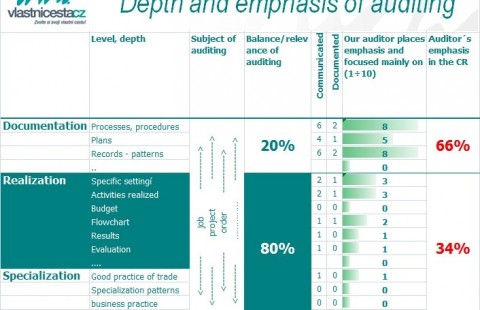A lack of reason and, in particular, responsibility in defining the criteria for selection procedures to educate an organization´s staff has lately become „commonplace“ in the sphere of education and, unfortunately, not only there. Ever more frequently, we have seen the price becoming the one and only performance criterion.
A lack of reason and, in particular, responsibility in defining the criteria for selection procedures to educate an organization´s staff has lately become „commonplace“ in the sphere of education and, unfortunately, not only there. Ever more frequently, we have seen the price becoming the one and only performance criterion. At a glance, it may seem right and economically justifiable, but is it the objective truth? Is such an organization really going to slash their costs?
The old golden common sense does command that we do not purchase products and services on account of their low prices, but because of their ability to satisfy our needs. The satisfaction gets materialized through the properties they possess, where the price is indeed a factor, yet the cardinal satisfaction determiner is the quality (something already our ancestors were able to recognize when they would say: „we are not so rich as to be buying cheap things“; „little money buys little music“, etc.). If we admitted, hypothetically, that the input price is the source of added value, it would then be beneficial for an organization to buy „theTrabant make“ for their haulage business, and wear service uniforms purchased in a secondhand shop. However, educational activities are not being bought in order to cut the costs of education, but to create or strengthen the ability of participants to provide a higher added value for their customers. In the absence of quality, the price parameter of such a training is a ridiculous or sarcastic matter, depending on who is concerned.
If we ask ourselves why an organization wants to train their people and to what end, we always come to contemplate issues like:
- added value,
- productivity,
- efficiency,
- creativity,
- improvement and innovation.
If we dare to concede education is really a decisive, if not the only one, driving factor in creating the added value and of the advancement in general, then the educational process makes the generator of the driving factors. Its quality direcly determines its productivity and effectivity. In a sound and serious economy, it holds good the value of this quality is expressed through its price. The absence of quality parameters in selection procedures not only reflects non-professionalism, but - directly and altogether effectively - undermines the organization´s real need to increase the added value, improve and innovate (they are the essential components of the organization´s ability to compete and , in some cases, even succeed and survive). Running inferior yet cheap trainings comes with a collateral effect: it cultivates the graduates´ aversion for further training programmes. Thus, the stopping powers of the company´s competitiveness are effectively being started up (with a silent consent from the side of those happy, cost-orientated managers). The winner here is, then, resignation to the desperate, low-standard intellectual climate which, subsequently, spins the spiral of doom.


